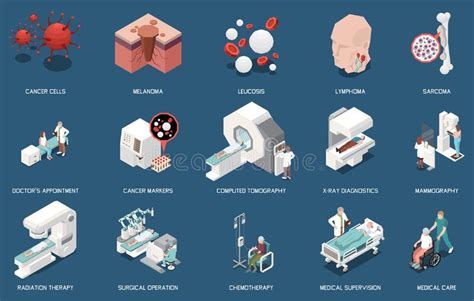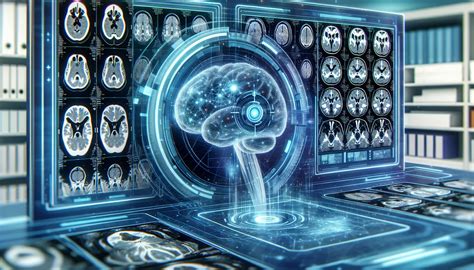Do You Wish You Could Diagnose Your Medical Condition without Leaving Home?
Need help finding medical diagnostics near you? Wondering how to get the most accurate results from your tests? Our guide covers everything you need to know about medical diagnostics near you, including choosing the right clinic, preparing for your appointment, and understanding your results. Embrace a healthier future by exploring our comprehensive guide today!
If you're experiencing any health issues and want to get a medical diagnosis, you might be wondering where to start. There are many different types of medical diagnostics available, and it can be confusing to know which one is right for you.
Medical diagnostics are an essential part of modern healthcare. They help doctors identify and treat a wide range of conditions, from common illnesses to complex medical conditions. Diagnostic tests are vital in enabling medical practitioners to gain insight into your health status, enabling them to accurately identify and address your health concerns.
By seeking out medical diagnostics near you, you can take a proactive approach towards your health, actively participating in preserving your well-being. Whether it's a routine checkup or a specific health concern, diagnostic tests provide a wealth of information, allowing you and your healthcare provider to make informed decisions about your treatment plan.
Medical Diagnostics Near Me: A Comprehensive Guide to Finding the Best Diagnostic Services
Overview - 
Medical diagnostics encompass a wide range of tests and procedures used to detect, diagnose, and monitor various health conditions. From routine checkups to specialized examinations, medical diagnostics play a crucial role in ensuring accurate and timely healthcare interventions. With advancements in medical technology, numerous diagnostic services are now available, making it essential to navigate and choose the most suitable options for your healthcare needs. This comprehensive guide will provide valuable insights into finding the best medical diagnostics near you.
Types of Medical Diagnostics - 
Laboratory Tests: These tests analyze various bodily fluids, such as blood, urine, and tissue samples, to detect abnormalities or the presence of specific biomarkers. Examples include blood glucose tests, lipid profiles, and hormone level tests.
Imaging Tests: These procedures utilize sophisticated equipment to obtain visual representations of internal body structures and organs. X-rays, CT scans, MRI scans, and ultrasound examinations fall under this category.
Pathology Tests: Pathology involves examining tissue samples under a microscope to detect abnormalities in cell structure or function. Biopsies and cytology tests are common pathology procedures.
Genetic Tests: These tests analyze genetic material to identify variations or mutations associated with specific diseases or conditions. Genetic testing can be used for prenatal diagnosis, carrier screening, and personalized medicine.
Functional Tests: Functional tests assess the performance of specific organs or systems. Pulmonary function tests, electrocardiograms (ECGs), and stress tests are examples of functional tests.
Choosing the Right Diagnostic Center - 
Accreditation and Certification: Look for diagnostic centers accredited by reputable organizations, such as the Joint Commission or the American College of Radiology (ACR), ensuring adherence to quality standards.
Expertise and Specialization: Consider the center's expertise in the specific diagnostic test or procedure you need. Check if they have specialized equipment and experienced medical professionals for accurate and reliable results.
Convenience and Accessibility: Choose a diagnostic center conveniently located near your home or workplace. Consider factors such as parking availability, public transportation options, and operating hours.
Patient Reviews and Reputation: Read online reviews and testimonials from previous patients to gain insights into the quality of care, efficiency, and patient satisfaction at a particular diagnostic center.
Insurance and Affordability: Ensure that the diagnostic center accepts your insurance coverage. Compare pricing for various tests and procedures across different centers to find the most affordable options.
Preparing for Your Diagnostic Test - 
Follow Instructions Carefully: Adhere to any specific instructions provided by your healthcare provider or the diagnostic center regarding fasting, medication adjustments, or special preparations required before the test.
Bring Relevant Medical Records: Carry previous test results, medical history, and a list of current medications to ensure comprehensive analysis and accurate interpretation of your diagnostic results.
Arrive Early: Arrive at the diagnostic center a few minutes early to complete registration formalities and provide necessary information. This helps ensure a smooth and efficient process.
Interpreting Your Diagnostic Results - 
Consult Your Healthcare Provider: Always consult your healthcare provider to discuss your diagnostic results. They can interpret the findings, explain their implications, and recommend appropriate treatment or further steps.
Understand the Report: Review the diagnostic report carefully. It usually includes detailed information about the test performed, the results, and any relevant notes or observations made during the procedure.
Ask Questions: If you have any questions or concerns regarding your diagnostic results, do not hesitate to ask your healthcare provider or the diagnostic center staff for clarification.
Advancements in Medical Diagnostics - 
Artificial Intelligence (AI): AI algorithms are used to analyze medical images, such as CT scans and MRIs, with greater accuracy and speed, aiding in early disease detection and diagnosis.
Precision Diagnostics: Precision diagnostics involve analyzing an individual's genetic profile and other factors to tailor diagnostic tests and treatments to specific patient needs.
Molecular Diagnostics: Molecular diagnostics focus on detecting genetic mutations, biomarkers, and infectious agents at the molecular level, enabling personalized medicine and targeted therapies.
Non-Invasive Diagnostics: Developments in non-invasive diagnostic techniques, such as liquid biopsies and wearable sensors, reduce the need for invasive procedures.
Point-of-Care Diagnostics: Portable and rapid diagnostic devices allow for on-the-spot testing, reducing waiting times and facilitating early interventions.
Future of Medical Diagnostics - 
AI-Powered Diagnostics: AI will continue to revolutionize medical diagnostics with improved image analysis, personalized diagnosis, and predictive modeling.
Nanotechnology: Nanoscale devices and materials hold promise for ultra-sensitive diagnostics, enabling early detection of diseases at the molecular level.
Genomics and Precision Medicine: Advances in genomics will facilitate the development of personalized diagnostic tests and therapies tailored to individual genetic profiles.
Wearable Sensors and Telemedicine: Remote patient monitoring through wearable sensors and telemedicine platforms will expand access to diagnostics in underserved areas.
Machine Learning and Big Data: Machine learning algorithms will analyze vast amounts of medical data to identify patterns and improve diagnostic accuracy.
Conclusion
Navigating the world of medical diagnostics can be overwhelming, but with the right information and guidance, you can find the best diagnostic services near you. By considering factors such as accreditation, expertise, convenience, and affordability, you can make an informed decision about where to receive your diagnostic tests. Additionally, staying updated on advancements in medical diagnostics allows you to benefit from the latest technologies and innovations in healthcare.
FAQs
1. How can I find a diagnostic center near me that accepts my insurance?
Check with your insurance provider or visit the diagnostic center's website to verify if they accept your insurance coverage.
2. What should I bring with me to my diagnostic appointment?
Bring your photo ID, insurance card, and any relevant medical records, such as previous test results and a list of current medications.
3. Can I get my diagnostic results online?
Some diagnostic centers offer online access to results. Inquire with the center about their policy regarding online results delivery.
4. How long will it take to receive my diagnostic results?
The turnaround time for diagnostic results varies depending on the test or procedure. Ask the diagnostic center about the estimated timeframe for receiving your results.
5. What if I have questions about my diagnostic results?
Always consult your healthcare provider to discuss your diagnostic results and any questions or concerns you may have.
.